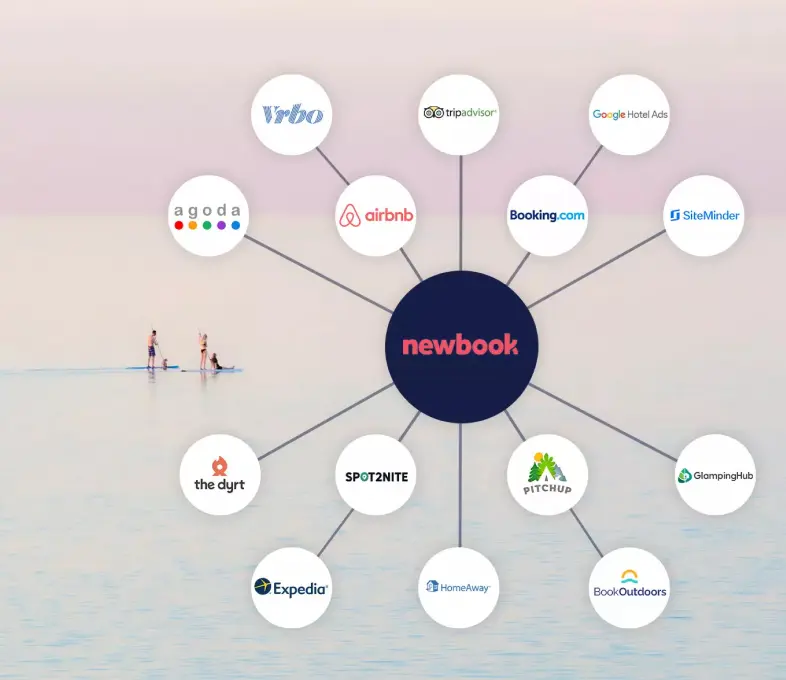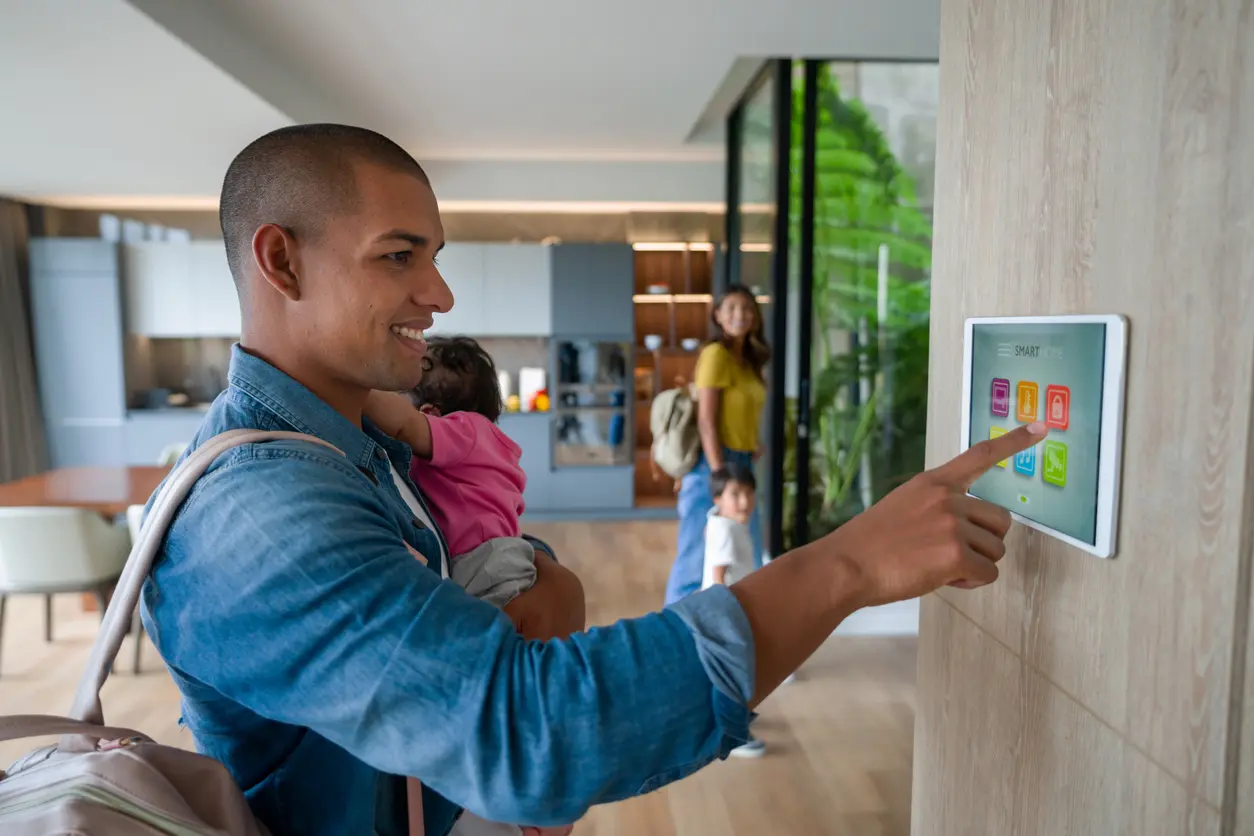Managing holiday rental properties can be a demanding yet highly rewarding business. With the ever-increasing popularity of vacation rentals, property managers face the challenge of balancing efficient operations with maximizing guest satisfaction and profits. To stay competitive, embracing technology and optimizing workflows are no longer optional but essential. This article delves into how holiday rental management software and best practices can help streamline operations, reduce errors, and create unforgettable guest experiences—all while boosting profitability. Whether you’re managing a single property or an expansive portfolio, the strategies outlined here will equip you with the tools to thrive in this fast-paced industry.
Key Features of Holiday Rental Management Software
If you do a quick Google search for “holiday rental management software”, you’ll be inundated with a myriad of options, making it easy to get overwhelmed with choice paralysis. But when you consider the features that you need and make a decision on whether free holiday rental management software or paid is the better option for your business, then it’s easier to narrow your search.
Here are some key features of holiday rental property management software that you should be looking for when choosing a solution:
1. Booking Management
Efficient booking management is at the heart of any holiday rental management software. This is where you’re going to be able to manage all of your incoming reservations, regardless of where they originate from. Within the booking management part of the software, you should find it includes:
- Reservation Tracking: Keeps a centralized record of all bookings, whether made directly or through online travel agencies (OTAs).
- Real-Time Availability Updates: Ensures availability calendars are up to date across all platforms, reducing the risk of double bookings.
- Customizable Booking Rules: Set minimum stays, blackout dates, or specific check-in/out times to suit your property’s requirements.
2. Channel Integration
Managing multiple listings on OTAs like Airbnb, Booking.com, and Vrbo can be overwhelming without proper synchronization. While listing with multiple platforms is beneficial for visibility, manually changing prices, descriptions, and images for each listing can be extremely time-consuming. And what happens when something is missed and someone makes a booking at the wrong price? Integrated channel control within the holiday rental management software should give you:
- Unified Dashboard: Manage all channel listings from a single platform, saving time and reducing errors.
- Automated Updates: Adjusts availability, pricing, and booking details across all channels in real time.
- Revenue Growth: Maximizes exposure and bookings by maintaining consistency across multiple platforms.
More bookings, more often with our built in channel manager
Newbook is your all in one property management software. Talk to us today to learn how you can inprove operations and increase bookings for your business.


3. Dynamic Pricing Tools
Dynamic pricing ensures your rates remain competitive while optimizing revenue. With most dynamic pricing tools, you can set your minimum and maximum price and have the software adjust your rates within that range. A great dynamic pricing tool should include:
- Automated Adjustments: Changes rates based on factors like demand, seasonality, local events, and competitor pricing. It’s important to keep in mind that dynamic pricing is based on historical data as well as real-time data, so the more data you have to feed it, the better.
- Customizable Strategies: Set your own rules to prioritize occupancy or profit margins. For example, a mountain lodge decides to prioritize occupancy during the off-season by setting rules to offer discounted rates for stays longer than three nights. Conversely, during peak ski season, the property sets minimum prices to maximize revenue, even with fewer bookings.
- Market Insights: Provides data-driven recommendations for optimal pricing strategies. For example, a city apartment rental in New York uses its pricing tool to analyze competitor rates and demand trends for nearby properties. Based on insights from an upcoming music festival, the software recommends a 20% rate increase, which helps the property capitalize on the surge in visitors while remaining competitive.
4. Guest Communication
A seamless communication process improves guest satisfaction and streamlines operations.
- Automated Messaging: Sends instant replies to inquiries, booking confirmations, and pre-arrival instructions.
- Personalized Experiences: Allows for customized greetings, upselling offers, and post-stay thank-you notes.
- Centralized Inbox: Consolidates all guest communications, including emails and OTA messages, into one platform.
5. Free vs. Paid Holiday Rental Management Software
When choosing between free holiday rental management software or paid, understanding the trade-offs can help you make an informed decision.
| Feature | Free Software | Paid Software |
| Cost | No upfront cost, ideal for small-scale operations. | Subscription or one-time fee, suitable for scaling. |
| Core Features | Basic booking management, limited integrations. | Advanced features, including dynamic pricing and analytics. |
| Channel Integration | Limited or manual updates. | Full integration with OTAs, real-time synchronization. |
| Customization | Few options for tailoring workflows. | Highly customizable to meet specific needs. |
| Support | Community forums or basic help documentation. | Dedicated customer support with faster response times. |
| Scalability | Suitable for managing 1-2 properties. | Designed for businesses managing multiple properties. |
| Data Analytics and Reporting | Minimal or no reporting features. | Comprehensive insights for performance and revenue tracking. |
| Long-Term Value | Cost-effective for basic needs but limited in growth potential. | Greater ROI through advanced functionality and automation. |
When deciding between free and paid solutions, consider your property size, growth ambitions, and specific feature needs. Free options are great for getting started, but paid software provides the tools needed to scale your business effectively. For this reason, it’s usually a better investment to use paid software in the beginning rather than switching from free holiday rental management software to a paid version later on, unless it’s the same vendor and you’re switching from a free demo or trial to a paid account.
Benefits of Using Holiday Rental Management Software
Managing holiday rentals can be a complex and time-consuming task, especially when juggling multiple properties, guest communications, and pricing strategies. Holiday rental management software streamlines these processes, offering tools that save time, reduce errors, and enhance guest satisfaction. Here’s a closer look at how these systems can transform your property management operations:
1. Improved Efficiency with Centralized Control of Multiple Properties
Managing multiple properties becomes significantly easier with a centralized platform:
- Centralized Operations: With all booking calendars, pricing updates, and guest communications in one place, property managers can manage multiple locations without switching between systems or tools.
- Real-Time Updates: Changes in availability or rates made through the software reflect instantly across all channels, minimizing errors.
- Example: A property manager with rentals in various cities uses the platform to synchronize calendars across all properties, eliminating the need for manual adjustments and ensuring accurate information for potential guests. This saves hours of work each week.
2. Enhanced Guest Satisfaction Through Seamless Booking and Communication
Guest satisfaction is critical for repeat business and positive reviews:
- Streamlined Booking: Simplified booking processes with clear instructions and instant confirmations improve the guest experience.
- Automated Communication: Guests receive timely updates, such as pre-arrival instructions, check-in details, and personalized offers, reducing uncertainty.
- Customization: Personalized messages, like special offers for returning guests or tailored welcome notes, create a memorable experience.
- Example: Guests booking a vacation home receive a personalized email with details about nearby attractions and restaurant recommendations. Automated reminders ensure they know how to check in, leaving them impressed with the property manager’s attention to detail.
eBook: 5 Powerful Ways to Use Automated SMS
“We made an additional $7000 in one month by using SMS Late Check-Outs.” Find out how you can too!


3. Cost Savings by Reducing Manual Tasks and Errors
Automation helps cut costs and prevent costly mistakes:
- Time Savings: Automating repetitive tasks like availability updates, invoicing, and reminders frees up time for staff to focus on more strategic activities.
- Error Reduction: Features like real-time synchronization across booking platforms reduce the chances of double bookings, refund requests, or guest dissatisfaction.
- Example: A property manager automates calendar synchronization across OTAs like Airbnb and Booking.com, preventing overlap or missed updates that could result in overbooking. This not only avoids lost revenue but also preserves the manager’s reputation.
4. Scalability to Manage Both Short-Term Holiday Rentals and Long-Term Stays
As your business grows, the software grows with you:
- Flexible Management: Whether managing vacation rentals or long-term leases, the software adapts to different property types and rental durations.
- Advanced Tools: Features like dynamic pricing and lease management make it easier to scale operations without compromising on efficiency.
- Example: A property manager expands from handling a handful of short-term vacation rentals to managing several long-term rentals. The software’s ability to track lease terms, automate rent reminders, and handle long-term guest communication ensures seamless operations without the need for a separate system.
5. Improved Data Analytics and Reporting
Gain valuable insights into your business performance:
- Detailed Reports: Access analytics on occupancy rates, revenue, and booking trends.
- Informed Decisions: Use data to refine pricing strategies, identify peak seasons, and optimize marketing campaigns.
- Example: A manager notices a drop in midweek bookings during off-season months. Analytics help them implement targeted discounts, boosting midweek occupancy.
Tips for Effective Holiday Property Rental Management

Managing holiday rental properties requires a blend of strategic planning, efficient tools, and a guest-centric approach. To stay competitive and maximize revenue, consider these essential tips for effective management:
| Tip | Key Actions | Benefits |
| Automate Workflows | Sync booking calendars, automate payments, and notify housekeeping staff of schedules. | Saves time, ensures smooth operations, and avoids manual errors. |
| Leverage Data Analytics | Analyze trends in occupancy, guest preferences, and booking patterns. | Informs pricing, improves marketing strategies, and enhances guest satisfaction. |
| Maintain Consistent Branding and Personalization | Use uniform descriptions and visuals across platforms; offer tailored communication. | Builds a professional image, strengthens brand loyalty, and increases direct bookings. |
| Optimize Pricing Strategies | Use dynamic pricing tools and seasonal promotions. | Boosts revenue during high demand and maintains occupancy during off-peak times. |
| Use High-Quality Visuals and Descriptions | Invest in professional photos and highlight unique features in property descriptions. | Attracts more bookings and creates a strong first impression. |
| Build a Social Media Presence | Share content like photos and testimonials; run targeted ads for direct bookings. | Increases visibility, engages potential guests, and boosts direct bookings. |
| Provide Exceptional Guest Support | Offer 24/7 support through messaging platforms; collect guest feedback. | Enhances guest satisfaction, drives positive reviews, and encourages repeat bookings. |
| Regularly Inspect and Maintain Properties | Conduct inspections, address issues proactively, and integrate smart technologies for monitoring. | Ensures a high-quality guest experience and reduces maintenance costs. |
| Invest in Local Partnerships | Partner with local businesses for guest discounts and unique experiences. | Enriches guest stays and increases the value of bookings. |
| Stay Updated on Trends and Expectations | Adopt tech innovations like smart locks and AI tools; implement sustainability practices like solar panels and recycling programs. | Keeps your business competitive and appeals to modern, eco-conscious travelers. |
1. Set Up Automated Workflows for Bookings, Payments, and Cleaning Schedules
Automation reduces manual work and ensures smooth operations:
- Bookings: Use property management automation software to sync calendars across platforms and provide instant booking confirmations.
- Payments: Integrate secure payment gateways for hassle-free transactions, including automated invoicing and receipt generation.
- Cleaning Schedules: Automate notifications to housekeeping staff about checkouts and incoming guests, ensuring properties are always guest-ready.
2. Leverage Data Analytics to Identify Trends and Improve Marketing Strategies
Data-driven insights can significantly enhance your marketing and pricing strategies:
- Occupancy Trends: Identify high-demand periods and adjust pricing accordingly.
- Guest Preferences: Analyze guest feedback and booking patterns to refine offerings, such as adding amenities or services.
- Targeted Marketing: Use data to segment your audience and create personalized promotions that resonate with potential guests.
3. Maintain Consistent Branding and Personalized Guest Experiences Across OTA Platforms
Consistency and personalization are key to building a strong brand:
- Branding: Use uniform property descriptions, photos, and pricing across all listing platforms to maintain a professional image. When you use a channel manager, like the one that comes built-in with Newbook, you can make a single change that globally updates all the OTAs you list with, eliminating the need to update each OTA manually.
- Personalization: Offer tailored communication, such as welcoming messages, local recommendations, or exclusive discounts for returning guests. With Newbook, you can offer exclusive direct-booking promotions through the included robust booking engine.
4. Optimize Pricing with Dynamic Tools and Seasonal Strategies
Stay competitive by adapting rates to market demand and trends:
- Dynamic Pricing: Implement software to automatically adjust rates based on demand, local events, and competitor pricing.
- Seasonal Promotions: Offer discounts during off-peak times to attract bookings and maintain occupancy.
- Example: A city apartment rental increases rates during a local conference while offering midweek discounts during quieter periods.
5. Use High-Quality Visuals and Detailed Descriptions
First impressions matter, especially in online listings:
- Photos: Invest in professional photography to showcase your property’s best features, including well-lit interiors and attractive amenities.
- Descriptions: Highlight unique selling points, such as proximity to attractions, family-friendly features, or pet-friendly policies.
6. Build a Strong Social Media Presence
Engage potential guests and increase direct bookings through social media:
- Content Strategy: Share high-quality photos, guest testimonials, and local highlights to showcase your property.
- Promotions: Use social media ads to target travelers and offer exclusive discounts for direct bookings.
7. Provide Exceptional Guest Support
Great guest experiences drive positive reviews and repeat bookings:
- 24/7 Support: Offer round-the-clock assistance through messaging platforms or chatbots to address guest queries.
- Feedback Collection: Ask for feedback post-stay to understand guest preferences and improve services.
8. Regularly Inspect and Maintain Your Properties
Keeping your property in top condition ensures a great guest experience:
- Routine Checks: Conduct regular inspections for wear and tear, ensuring amenities like Wi-Fi, appliances, and HVAC systems are functional.
- Proactive Maintenance: Address minor issues before they become major problems to avoid disrupting guest stays. Integrating your PMS with smart lightbulbs, appliances, and more makes it easier to know exactly when an issue needs to be addressed. For example, Newbook can integrate with Wild Energy, a piece of software that allows remote management of powered camping sites. Through this software, staff can remotely turn powered sites on and off, and monitor the health and consumption of electricity without having to visit each site individually.
9. Invest in Local Partnerships
Collaborating with local businesses enhances the guest experience:
- Exclusive Offers: Partner with restaurants, tour operators, or spas to provide discounts or packages to your guests.
- Local Experiences: Promote unique activities such as guided hikes or cultural events to enrich guest stays. For example, if you offer a holiday rental in a cycling-focused city, you could partner with a local bike rental shop to provide guests with discounted rates.
10. Stay Updated on Industry Trends and Guest Expectations
The hospitality industry evolves rapidly, so staying informed is crucial:
- Tech Innovations: Embrace new tools like smart locks or AI-driven guest messaging to enhance convenience.
- Sustainability Practices: Incorporate eco-friendly initiatives, such as recycling programs or energy-efficient appliances, to appeal to conscious travelers. For example, installing solar panels not only reduces your electricity bill but can also be used in your marketing to capture eco-conscious travelers.
The Future of Holiday Rental Management

The holiday rental industry is evolving rapidly, shaped by advancements in technology, shifting guest preferences, and a growing emphasis on sustainability. Here’s a glimpse into the key trends and innovations defining the future of holiday rental management:
AI-Driven Personalization
Artificial intelligence is revolutionizing guest experiences by providing tailored services based on individual preferences. AI analyzes data such as booking history and reviews to suggest amenities, local activities, and dining options that align with each guest’s interests. Automated systems also handle guest inquiries, offering quick and efficient communication around the clock. For instance, an AI system might recommend specific hiking trails to a nature-loving guest, enhancing their stay while requiring minimal manual effort from property managers.
Smart Home Technology
Smart home devices are becoming integral to holiday rentals, offering both convenience and security. Features like keyless entry simplify check-ins, while smart thermostats and lighting systems optimize energy efficiency by adjusting settings based on occupancy. Voice-controlled devices further enhance the experience, allowing guests to control property settings or access local information hands-free. A property equipped with smart locks and personalized access codes exemplifies how these technologies are redefining modern rentals.
Eco-Friendly Rentals
Sustainability is at the forefront of the hospitality industry as more travelers seek environmentally responsible options. Properties incorporating energy-efficient appliances, solar panels, and plastic-free amenities attract eco-conscious guests. Some accommodations go further by promoting carbon offset programs, where guests can contribute to reducing their travel footprint. For example, an eco-lodge that prioritizes solar power and local sourcing appeals directly to travelers who value sustainable practices.
Automation
Automation is streamlining operations for property managers, reducing manual workload and enhancing efficiency. Dynamic pricing systems adjust rates in real time based on demand and competitor activity, while automated task management ensures smooth scheduling of cleaning and maintenance. Integrated revenue optimization tools analyze data to maximize income with minimal intervention. A software system that automatically notifies cleaning staff after checkouts exemplifies how automation is reshaping property management.
Virtual and Augmented Reality (VR and AR)
Immersive technologies like VR and AR are revolutionizing how properties are marketed and experienced. Virtual tours enable potential guests to explore properties online in 3D, offering transparency and building trust. Meanwhile, AR guides provide guests with interactive property navigation and local attraction recommendations. A luxury rental offering virtual tours on its website is a perfect example of how these technologies enhance both marketing and guest experiences.
Direct Bookings and Blockchain Integration
Direct booking platforms are becoming increasingly popular as they offer transparency and security through blockchain technology. Smart contracts ensure fraud-proof transactions, while loyalty programs incentivize guests with discounts and exclusive perks for booking directly. A property using blockchain to power its booking system demonstrates the growing importance of these innovative approaches.
Enhanced Data Analytics
Data is playing a crucial role in decision-making for property managers. Predictive analytics forecast booking trends, helping optimize pricing and availability, while real-time dashboards provide insights into key performance indicators like occupancy rates and revenue. For example, a manager using analytics to identify low-performing months and launching targeted marketing campaigns showcases how data can drive strategic improvements.
Conclusion
The holiday rental industry is more dynamic and competitive than ever, requiring property managers to adapt and innovate constantly. By leveraging the right software, adopting best practices, and staying ahead of industry trends, you can significantly enhance operational efficiency, guest satisfaction, and revenue potential. From streamlined booking management to data-driven pricing strategies, the solutions are within reach to transform how you manage your properties. As the industry continues to evolve, embracing these tools and strategies will position your business for sustained success and growth in the years to come.
Get the all-in-one tool that will help your rental business save time and money. Reach out to Newbook today for a demo.
Your all-in-one, online booking system
Newbook is your all in one online booking system. Talk to us today to learn how you can improve operations and increase booking for your business.



